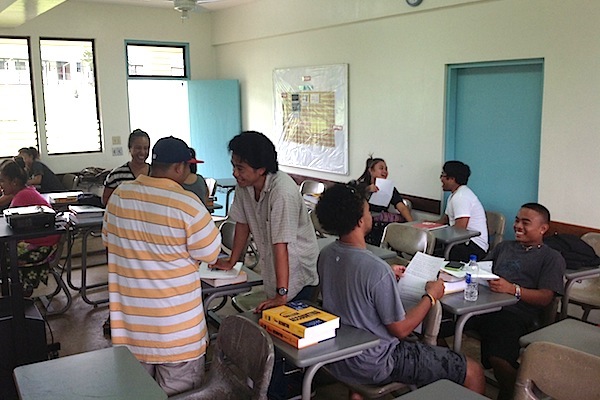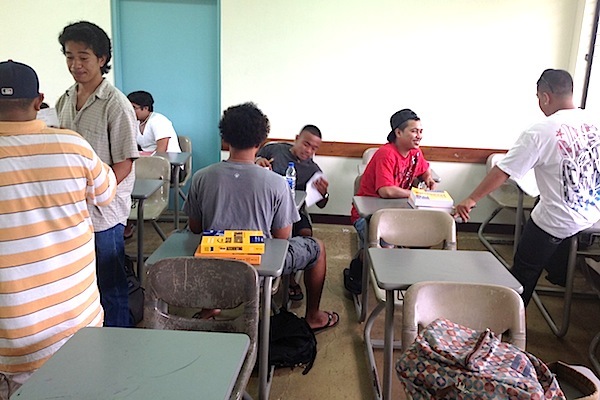Assessment
"Enthusiasm is a vital element toward the individual
success of every man or woman..." ~ Conrad Hilton
Student Knowledge on SLOs
Three days before the Spring 2013 first day of instruction, Vice
President for Institutional Effectiveness & Quality Assurance &
ALO Frankie Harriss sent the following email message:Dear
Faculty,
When you met with Jim Mulik (consultant with Sandy Pond Associates) in October, you had an excellent discussion around SLOs and you all indicated you were not certain if students know what the SLOs are and what they represent.
Based on your conversation, he recommended, at the beginning of the semester you ask students about the following:
As we are beginning a new semester, I wanted to remind you of the excellent dialogue you had with Jim and the good advise received. You might even use these in your classroom-level assessment report.
When you met with Jim Mulik (consultant with Sandy Pond Associates) in October, you had an excellent discussion around SLOs and you all indicated you were not certain if students know what the SLOs are and what they represent.
Based on your conversation, he recommended, at the beginning of the semester you ask students about the following:
- Why are you taking this particular course?
- How does the course fit into your academic plan?
- Do you understand what the course SLOs are?
- What grade do you believe you will earn in this course?
- How hard do you believe you will need to work to earn the grade you believe you will receive?
As we are beginning a new semester, I wanted to remind you of the excellent dialogue you had with Jim and the good advise received. You might even use these in your classroom-level assessment report.
I was one of those who participated in that discussion. I thought Jim's recommendation was excellent. I was also struck by its simplicity, and I wondered why it never occurred to me in the first place. I said it was simple, but I wasn't sure at first how I would engage the students in discussing the SLOs, especially among first year students and at the start of the semester.
It used to be a one-way traffic. On day one, I explained the SLOs in the syllabus. The students listened. I paused from time to time to ask if they had questions. No reaction. Hmmm... There must be a way get them excited about the SLOs. But how?
Then I remembered one of the activities we did during a workshop on Best Practices sponsored by the college. So here's what I did.
On the first day of class, after giving a pretest, I distributed copies of the course syllabus and, as usual, explained its contents, including the SLOs. Then I wrote on the board the five questions that Jim Mulik recommended (above) and gave those as assignment for them to answer and submit next meeting.
When the class met again two days later, I told them to bring out their assignments, which they promptly did. Then I instructed them to turn to the nearest classmate and take turns in asking and answering questions, even if they had to read from their written work, until further notice. After about three minutes, I told them to move around and choose another partner seated a little bit farther from where they were, and repeat the question-and-answer activity. For the third and final time, I asked them to choose a partner seated at the opposite side of the room from where they were, and this time I told them to choose only three questions to ask and answer.

To the first question, "Why are you taking this course?", the usual response was "It's a requirement for my major." (I did this activity in three of my classes that same day, and in one class, 10 out of 17 students said so in their assignments.)
Listening to them speak in class and say they had to take this course because they had no choice, that it's required for them to graduate, I saw an opportunity to motivate the students. I told them, sure they had no choice, but that's harldy a good reason to study and pass my course, which is Accounting. I then went on to ask them questions: Have you tried eating food that you really didn't like to eat? or be with someone whom you hate and wanted to stay away from? or do something that you detest doing? Wasn't the food difficult to swallow, the presence of someone made you feel uneasy, the task twice as hard to complete? Wouldn't it be more fun if you eat food that is among your favorites? Be with someone whose company you enjoy? Do something that you truly enjoy doing? Accounting, I told them, and any other course at the college, could be fun and easy to learn, if they like it. So, I explained, rather than taking this course because it is required, or because they have no choice, why not try to like and enjoy studying it?

To the third question, "Do you understand what the course SLOs are?", 12 students said yes and five said no. One of those who said yes wrote: "Yes, it's almost like a breakdown of what I should learn and put to use and what the college expects out of me as a student of COM-FSM."
"What grade do you believe you will earn in this course?" To this question, here's a summary of what the students from the same class wrote:
| GRADE |
STUDENTS |
| A |
4 |
| A or B |
4 |
| B |
1 |
| B or C |
4 |
| C |
2 |
| Not sure |
2 |
And to the last question, "How hard do you believe you will need to work to earn the grade you believe you will receive?", almost all students mentioned "very hard," "really hard," "work harder," "try my best," etc. One student wrote passionately: "I will need to work very hard and put a lot of efforts into it so I can get what I want... I need to work so hard until my fingers bleed and my eyes popped out in order to be successful..."

So, how are my students doing in this course so far? How hard are they working? How successful are they in their SLOs?
I just finished making two web pages earlier today, showing the latest assessments of two sections of my accounting class for the period covering the first two weeks of this semeter. See for yourself what the performance indicators say, and guess how close or far the students are to achieving their desired grades. Here are the links:
I will continue to monitor and post updates of their academic performance. I know from past assessments that performance by most students gradually but steadily improves over time, as their expectations and my own expectations about the course requirements and learning outcomes eventually reconcile. The first couple of weeks are usually adjustment periods for many, especially those who are new to my class and unfamiliar with my teaching methods.
Did I succeed in raising the students' awareness of SLOs and their importance in their studies? I wonder how many of my students still remember what they wrote down as responses to the five questions recommended by the consultant. I wonder how many will continue to be motivated and driven by what they said in their assignments. It would be interesting to see, at the end of this semester, what difference the answers to those questions made to help them achieve their learning outcomes.
Rafael Pulmano
1-27-2013
1-27-2013
See also...
- Survey: Students'
Awareness of SLOs by Dr. Allain
Bourgoin
- Why statistics and what will you learn? by Professor Dana Lee Ling
- Survey: COM-FSM Student Awareness of SLOs by Associate Professor Ross Perkins
- Summary of How Students
are Informed of SLOs in My Classes by Professor Sue Moses
for earlier assessment pages, this way please ...
Assessment Archive
This page does not reflect an official position of the College of Micronesia-FSM
© 2017 Rafael A. Pulmano. Design by Andreas Viklund | Modified by Jason Cole
